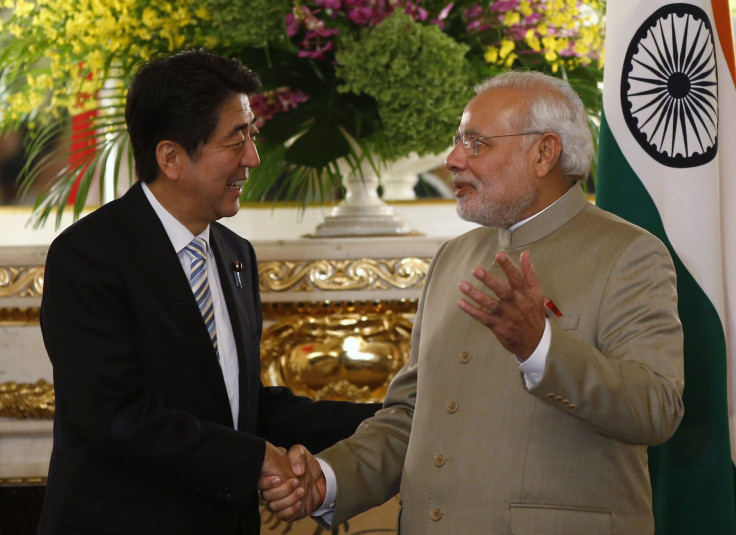Japan Invests Billions In India To Counter Chinese Influence Across Asia

Trade officials and ministers from India and Japan plan to convene a summit next week in Guwahati, a city in Assam in the extreme northeast of India. The summit’s primary agenda will involve Japan’s plan to increase its economic footprint in landlocked northeastern India.
Indian Prime Minister Narendra Modi and his Japanese counterpart Shinzo Abe are to meet Dec. 15-16.
All told, Japan expects to invest about $1.82 billion in various endeavors -- include a water supply project in Guwahati, road networks in Assam-Meghalaya, forest management and agriculture projects -- across the eight states of the region.
Japan also is focusing on connectivity-building projects in all of India, including the northeast.
In 2010, Japan commenced an overseas development assistance program in the northeast of India. In 2017, the Japan International Cooperation Agency, a part of the Tokyo government, agreed to provide $610 million for the first phase of the North East Road Network Connectivity Improvement Project, which will focus on projects in Meghalaya and Mizoram. That same year Modi and Abe established the Act East Forum for the “economic modernization” of northeast India.
Japan’s economic interest in India also encompasses Indian start-up companies. By 2017, Japanese corporate investments in Indian start-ups exceeded corresponding investments made by the U.S. and China.
Tracxn, a research and analytics firm, said that in 2017, the U.S. and China made capital investments in Indian start-ups of $4.6 billion and $3.5 billion, respectively. But Japan poured in $4.9 billion that year.
Leave a Nest Co. Ltd., a Japanese science and technology research firm, recently signed an agreement with Arc Ventures, an Indian venture capitalist firm, to establish a “start-up hub” with an initial investment of about $7 million.
Called ArcNest, this project will focus on finding solutions to air and water pollution in India.
SoftBank, the huge Japanese conglomerate, is making a much bigger splash in Indian start-ups. It plans to invest $10 billion in the sector by 2022.
From 2000 to 2019, Japan poured $30.27 billion into India, or 7.2% of the total foreign direct investment inflows into India over that period.
Japan has long sought to counterbalance Chinese influence in Asia -- making India a major battleground for the two north Asian rivals.
An editorial in the Japan Times noted progress in Japan-India relations in recent years "has often been viewed as an effort by both countries to counter China’s expanding economic and political influence in Asia.”
Indeed, just two weeks ago, Japan expressed its solidarity with India by rejecting an offer to join a Chinese-endorsed regional trade pact -- the Regional Comprehensive Economic Partnership -- since India withdrew from it.
Japanese Deputy Minister for Economy, Trade and Industry Hideki Makihara told Bloomberg his country will urge India to re-enter the partnership, but will not itself join unless New Delhi does so.
India reportedly pulled out of the Partnership because it already is running trade deficits with 11 of the 15 other pact members -- amounting to more than $100 billion. India thus feared a flood of even more cheap Chinese goods, undercutting Indian manufacturers amid an economic slowdown.
© Copyright IBTimes 2024. All rights reserved.





















